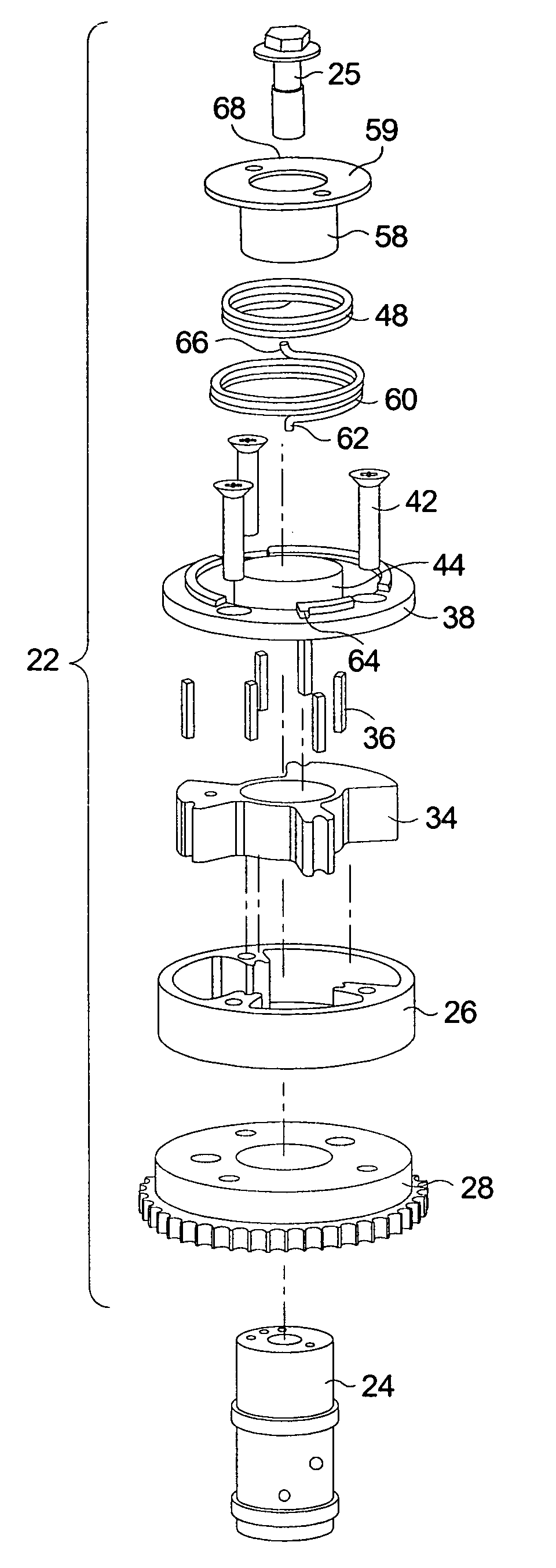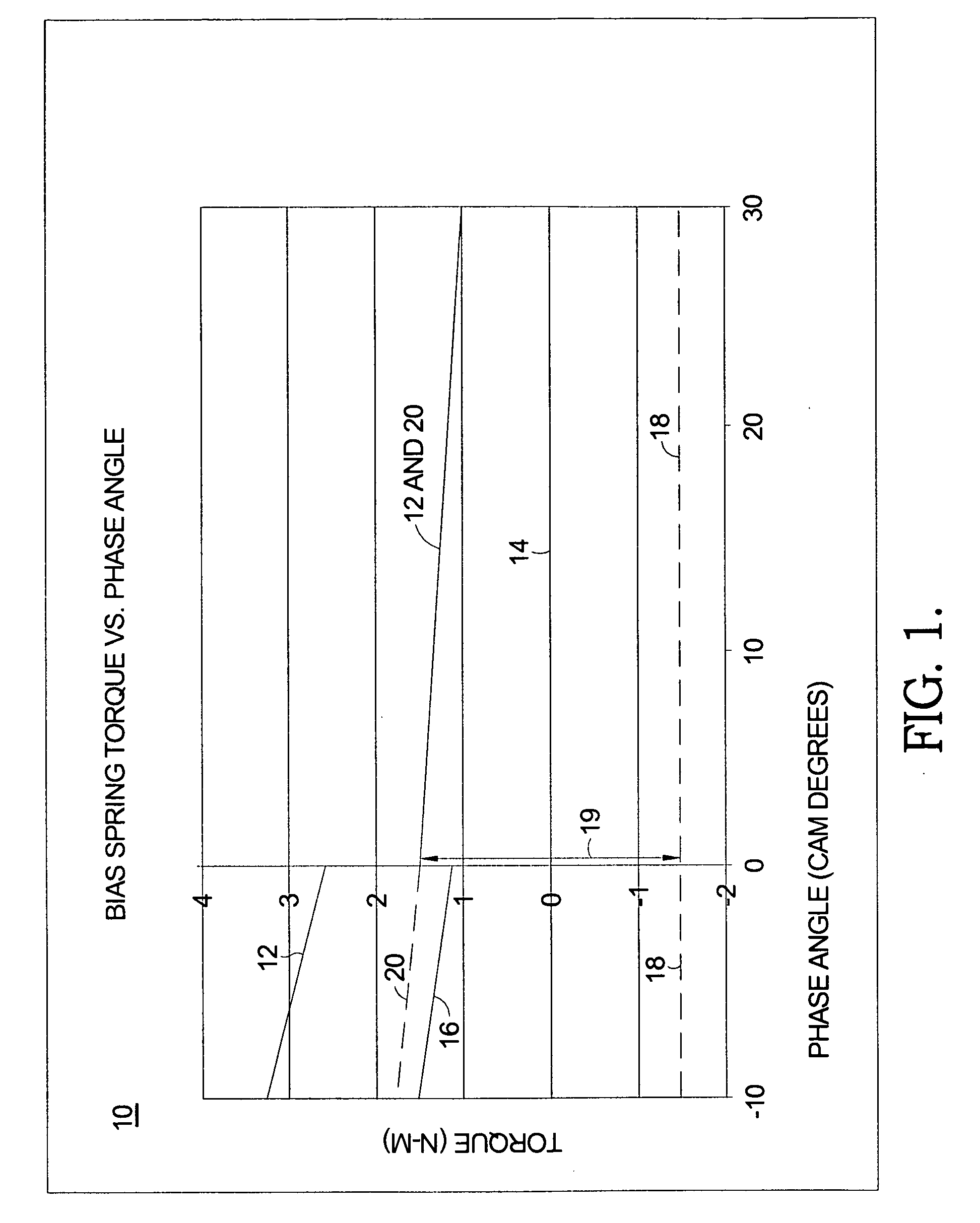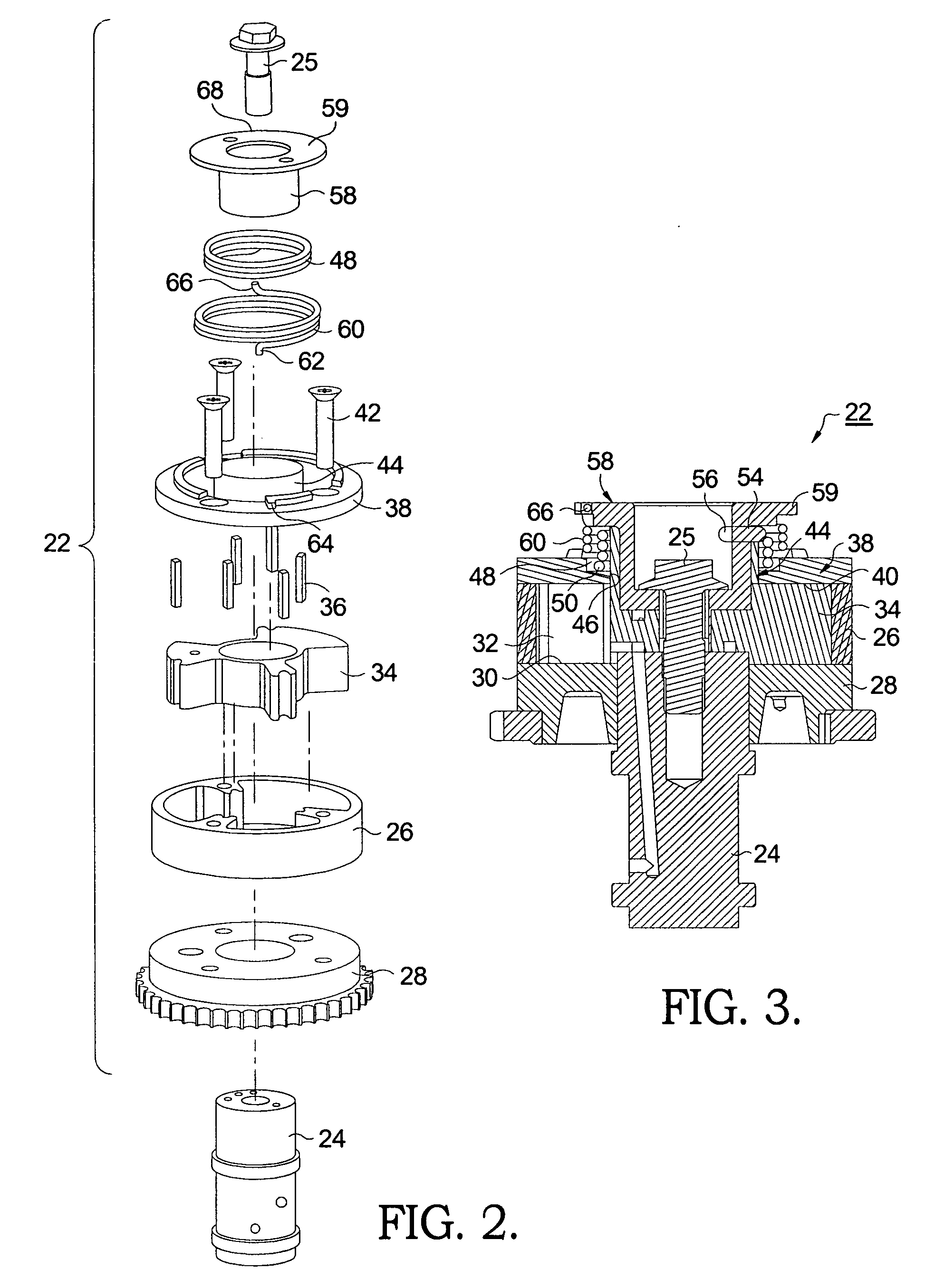Vane-type cam phaser having dual rotor bias springs
a cam phaser and bias spring technology, applied in the direction of yielding couplings, valve arrangements, couplings, etc., can solve the problems of unacceptably high rate of locking failure, rotor being slightly cocked within, and inability to reliably lock, so as to prevent any spring distortion and increase the reliability of locking
- Summary
- Abstract
- Description
- Claims
- Application Information
AI Technical Summary
Benefits of technology
Problems solved by technology
Method used
Image
Examples
Embodiment Construction
[0020]Referring to FIG. 1, graph 10 shows the interrelationships of various torque and bias spring functions in a camshaft phaser in accordance with the present invention. A rotational locking position of a rotor to a stator is defined as 0° phase angle. To permit reliable locking, the net torque on the rotor must be in the vicinity of zero Newton-meters. During engine cold start, the bias spring system comprising two bias springs as described below exerts a net torque in the phase-advance direction that exceeds the torque of the camshaft in the phase-retard direction, causing the rotor to be advanced from a fully retarded starting position (−100) to the locking position (0°). This is shown in Curve 12. Thereafter, at all rotor phase angles advanced from 0°, it is desired that the bias spring system exert little or no net torque, as shown in Curve 14. In the prior art, this is accomplished with a single bias spring (the innermost of two springs in the present invention as described ...
PUM
 Login to View More
Login to View More Abstract
Description
Claims
Application Information
 Login to View More
Login to View More - R&D
- Intellectual Property
- Life Sciences
- Materials
- Tech Scout
- Unparalleled Data Quality
- Higher Quality Content
- 60% Fewer Hallucinations
Browse by: Latest US Patents, China's latest patents, Technical Efficacy Thesaurus, Application Domain, Technology Topic, Popular Technical Reports.
© 2025 PatSnap. All rights reserved.Legal|Privacy policy|Modern Slavery Act Transparency Statement|Sitemap|About US| Contact US: help@patsnap.com



